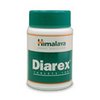INDICATIONS
Allopurinol is used for treating gout. It is used to treat high uric acid levels in the blood or urine caused by certain types of cancer chemotherapy. It is also used to treat certain patients with calcium oxalate kidney stones and high amounts of uric acid in the urine. Allopurinol is a xanthine oxidase inhibitor. It works by lowering the body's production of uric acid.
INSTRUCTIONS
Use Allopurinol as directed by your doctor.
- Take Allopurinol by mouth after meals to decrease stomach upset.
- Drinking extra fluids while you are taking Allopurinol is recommended. Check with your doctor for instructions.
- Continue to take Allopurinol even if you feel well. Do not miss any dose.
- If you miss a dose of Allopurinol, take it as soon as possible. If it is almost time for your next dose, skip the missed dose and go back to your regular dosing schedule. Do not take 2 doses at once.
Ask your health care provider any questions you may have about how to use Allopurinol.
STORAGE
Store Allopurinol at room temperature, between 68 and 77 degrees F (20 and 25 degrees C). Store away from heat, moisture, and light. Do not store in the bathroom. Keep Allopurinol out of the reach of children and away from pets.







